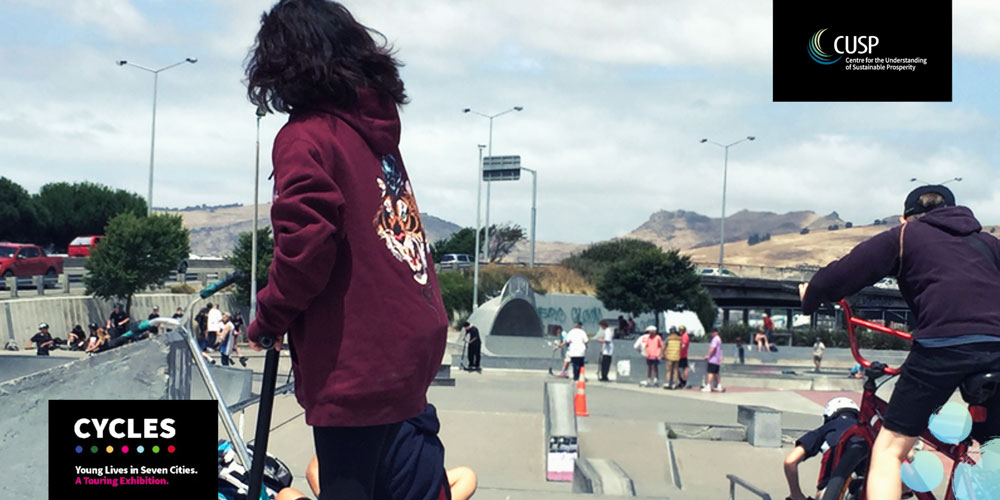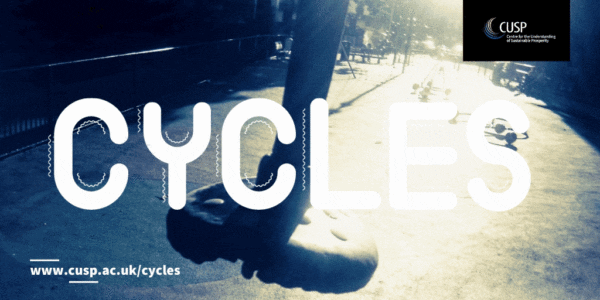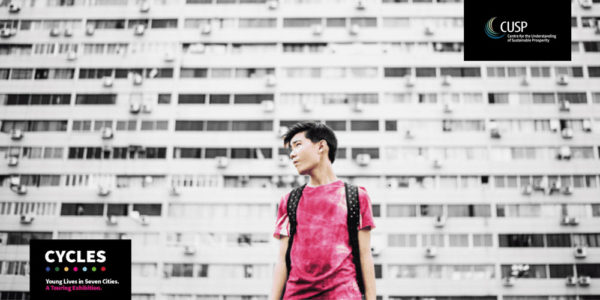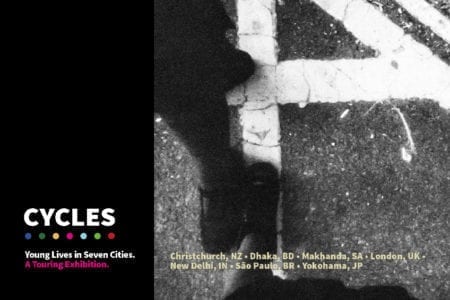Listening to young people to build back better
Thinking about what a community needs to do to support young citizens to live well is a key question that our international CYCLES study is exploring in seven cities around the globe. In this blog, CUSP research fellow Dr Kate Prendergast is summarising early learnings from the research in Christchurch Ōtautahi that asked 12-24 year olds what they like and would like to change about living in their city.

In the last decade young people living in Christchurch, New Zealand have experienced a range of serious disasters including earthquakes, localised flooding, fires, and terror attacks. In addition like their peers, many are anxious about a range of other issues, from bullying to future employment prospects, and the climate crisis. As all cities now confront COVID-19 and its risks, especially for the elderly, we also need to ask what will be the impact of our responses to this pandemic on young people and future generations? Will our varied responses deepen inequality and amplify existing challenges? Or can our city build back better?
Thinking about what a community needs to do to support young citizens to live well is a question that we have been exploring at the University of Canterbury with CUSP in the CYCLES study (Children and Youth in Cities – Lifestyle Evaluations and Sustainability). This project follows the lives of young people growing up in seven world cities. Alongside Professor Bronwyn Hayward at UC and Lincoln University’s Dr Sylvia Nissen, here in Christchurch we’ve been thinking about how young people can live environmentally sustainable and fulfilling lives in our city. The study began by interviewing 60 young Christchurch residents aged 12-24 from across the city in focus groups about what they like and value about living in our city and what they would change.
As decision-makers consider which projects to fund in a COVID recovery, the comments of these young people point to some possible options. The aesthetics of the city’s streets matter to young people we listened to. Some young people spoke proudly of enjoying the outdoors and ‘nice views’ from the classrooms onto green play space but sadly, other young people highlighted disparities in streetscapes between different parts of Christchurch. Some suburban streets ’don’t feel as nice‘ they ‘don’t have trees’ or they are divided by major roads that are ‘hard to cross’, or they have “low street lights that just don’t work as well as the ’richer‘ or ’better‘ parts of Christchurch. Much research tells us that planting street trees is not only good for the environment, but it is good for wellbeing for all citizens.
Having the freedom to get around and get away is important to all the young people we spoke to. They want sustainable, accessible, and safe transport but they said that the ‘spread out’ nature of the city makes it quite ‘car dependent’, which can be ‘quite isolating’. Young people also told us that while they like independence of using buses many still find the fares are ‘unaffordable’, and catching a bus can still be ‘difficult and time consuming’.
Moving around the city by foot and bike also provides young people a sense of independence and freedom. Yet some participants, young women in particular, reported that they don’t feel safe on some of their neighbourhood streets. They want to be able to walk and ‘not feel like they’re being followed’ or ‘being harassed’.
The young people we listened to also valued social connections. In a time of social distancing, this is a reminder that our city needs innovative initiatives that bring people together. Many youth wished there were more places than ‘just the malls’ to ‘hang out’. While all ages loved the Margaret Mahy playground, they also wanted more spaces to connect online and offline. For some the costs of Wi-Fi and the need for online connectivity made this valued connection hard.
During lockdown, all of us have spent many hours in our own homes. While the young people we spoke with in Christchurch before lockdown valued friendships and time with families it was disheartening to hear many young people talk about serious housing problems. Some reported their houses have been flooded more than once, while others said their homes are still earthquake-damaged. We also heard comments from young people whose families are unable to afford regular heating and rely on ‘blankets and stuff’, wearing puffer jackets some nights inside and using ‘hot water bottles’ to keep warm. The findings of our focus groups are a reminder that the city’s pandemic recovery must prioritise safe, secure, and warm housing.
Time in lockdown has given many people of all ages a chance to pause and think about what is important. Being able to move around Christchurch city freely, connecting with others, enjoying our local neighbourhoods and amenities, and living in decent houses matters for our collective wellbeing.
As the city grapples with how it will respond to COVID-19, it’s timely to note that many of the young people we spoke to said that adults need to ‘listen to young people more’ because they have ‘heaps of ideas’. The decisions made now will shape the wellbeing of the city for generations to come.



